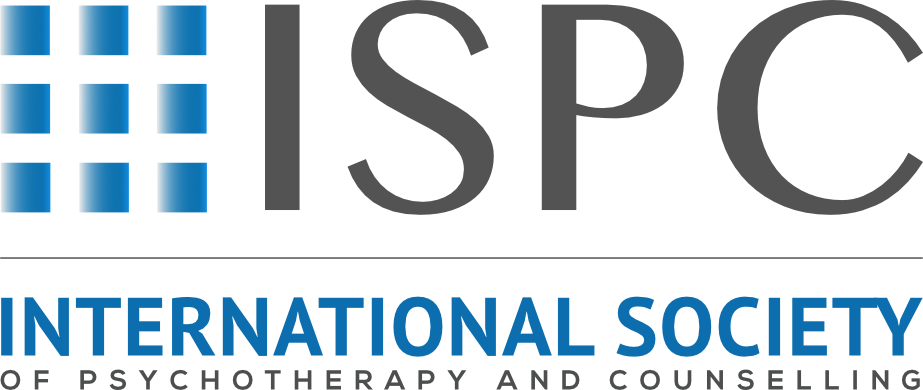ISPC Interview:
Guest: Dr. Ben Allenden, Counselling Psychologist, Integrative Psychotherapist, and Clinical Supervisor (SA)
Article authored by the ISPC
Introducing Our Conversation with Dr. Ben Allenden
In an era when mental health discourse often oscillates between oversimplification and abstraction, it is vital to return to the grounded, thoughtful heart of therapeutic practice. In this exclusive interview for the International Society for Psychotherapy and Counselling (ISPC) speaks with Dr. Ben Allenden—a Counselling Psychologist and integrative psychotherapist based in SA—about the deeper motivations that sustain clinical work.
Drawing on existential, Jungian, and narrative traditions—and reflecting on insights from thinkers like Jordan Peterson—Dr. Allenden offers a compelling perspective on why he finds profound meaning in sitting with clients through their struggles. Far from viewing therapy as mere symptom management, he describes it as a disciplined, ethical, and mutually transformative encounter: one in which language, responsibility, and truth become pathways to psychological reintegration.
What follows is a rich, nuanced dialogue that honours both the science and the soul of psychotherapy—ideal for practitioners committed to depth, integrity, and the enduring power of human connection.
The interview (20 minutes)…but we have gained so much!
Dean: Ben, thank you again for making time. Your recent essay—particularly your reflection on Jordan Peterson’s view of therapeutic engagement—has sparked considerable discussion among your peers. You wrote that you “enjoy working with people” not despite their suffering, but because of what it reveals about human potential. Could you unpack that?
Ben: Of course, Dean. It may sound paradoxical, but the presence of suffering often signals a readiness for transformation. When someone sits in my consulting room, they’re usually at a threshold—between old narratives that no longer serve them and new possibilities they can’t yet articulate. Psychologically speaking, that liminal space is where the psyche is most plastic. My enjoyment comes not from the pain itself, but from witnessing the courage it takes to face it—and the emergent order that arises when a person begins to speak their truth with precision and responsibility.
Dean: You’ve referenced Peterson’s notion of “logos” as an ordering principle. How does that translate into your clinical practice?
Ben: In practical terms, it means prioritising clarity of speech. Many clients arrive speaking in metaphors of collapse: “I’m falling apart,” “Everything’s a mess.” My task is to help them move from affect-laden abstraction to concrete, differentiated language. “What specifically feels unmanageable? When did it start? What choices preceded it?” This isn’t semantic nitpicking—it’s neurocognitive reorganisation. Language structures experience. When a client says, “I feel overwhelmed because I haven’t set boundaries with my boss,” they’ve moved from chaos to a solvable problem. That’s logos in action: speech as world-building.
Dean: Some critics argue this approach risks minimising systemic factors—poverty, discrimination, trauma. How do you reconcile individual responsibility with social context?
Ben: An essential question. Responsibility isn’t blame. To say “you have agency” is not to deny that someone grew up in a violent household or faces structural inequity. But even within constraint, there is always a margin of choice—however narrow. My role is to help clients locate that margin and expand it. For example, a client facing workplace discrimination may not control the system, but they can clarify their values, document incidents, seek support, or plan an exit. Peterson’s point—and mine—is that dignity arises from exercising agency within your domain of influence, however small. Ignoring that risks fostering helplessness, which is clinically iatrogenic.
Dean: You’ve described therapy as a “hermeneutic circle.” Could you elaborate on that?
Ben: Certainly. Hermeneutics is the theory of interpretation. In therapy, meaning isn’t discovered like a fossil; it’s co-constructed through dialogue. I offer a provisional interpretation—“It sounds as though you feel betrayed when people don’t meet your expectations”—and the client responds, corrects, or expands it. Over time, a more accurate, nuanced narrative emerges. Crucially, I’m also interpreting myself in this loop: my reactions, biases, theoretical assumptions. This mutual interpretive process keeps therapy alive, ethical, and anti-dogmatic.
Dean: How does this differ from purely symptom-focused models like Cognitive Behavioural Therapy?
Ben: CBT is invaluable for symptom reduction—and I use it. But if we stop there, we treat the psyche as a malfunctioning machine rather than a meaning-seeking organism. A depressed client may learn cognitive restructuring, but if they haven’t addressed the underlying question—“Why bother?”—relapse is likely. Depth-oriented work asks: What story are you living? Does it align with your values? Is it sustainable? That’s where lasting change occurs.
Dean: You’ve spoken about the therapist’s own transformation. Isn’t there a risk of boundary erosion?
Ben: Only if one confuses mutuality with self-disclosure. The therapist’s growth happens internally—through disciplined self-reflection, supervision, and personal therapy—not by sharing their life with the client. My emotional responses—frustration, sadness, hope—are data, not content. They tell me about the client’s relational patterns or my own countertransference. Managing that with integrity strengthens boundaries; it doesn’t blur them.
Dean: Returning to Peterson—his emphasis on “bearing your burden” seems central to your view.
Ben: Yes. Modern culture often pathologises normal suffering or promises effortless happiness. But psychological maturity involves accepting that life entails responsibility, limitation, and loss. The therapeutic task isn’t to eliminate burden, but to help clients carry it with dignity. As Peterson says, “Compare yourself to who you were yesterday, not to who someone else is today.” That’s a profoundly compassionate stance—it meets people where they are and says, “You can grow from here.”
Dean: For early-career clinicians listening, what would you say is the most undervalued skill in therapy?
Ben: Precision of attention. Not just listening, but attending—to words, pauses, posture, what’s omitted. The unconscious speaks in slips, metaphors, and somatic cues. A client says, “I’m fine,” while clenching their jaw. That dissonance is the entry point. Cultivating that quality of presence takes years of practice, self-work, and humility. It can’t be automated or scaled—but it’s where healing begins.
Dean: Finally, after two decades in the field, what sustains your commitment?
Ben: The quiet moments of breakthrough. When a client who’s spent years blaming others says, “Maybe I played a part in this.” Or when someone grieving finds a way to honour loss without being consumed by it. These aren’t dramatic revelations—they’re subtle shifts in orientation. But they signal a re-engagement with life. To witness that, repeatedly, is to reaffirm faith in the human spirit’s capacity for renewal. That’s why I still show up—curious, cautious, and deeply honoured to do so.
Dean: Dr. Ben Allenden, thank you for a truly illuminating conversation.
Ben: My pleasure, Dean. Thank you for holding space for depth in an age of speed.
A big thank you Dean for organising this interview. We know you said you didn’t want praise, but this short but hugely packed interview has sat very well with us. Thank you.
Links for you
- https://ispc.org.uk – Official ISPC website for professional membership and ethical guidance
- https://www.nhs.uk/mental-health – NHS overview of talking therapies for general context
- https://www.ispc/therapists.org.uk – ISPC Therapist directory where therapists can list walk and talk services
- https://www.mentalhealth.org.uk – Mental Health Foundation’s resources on nature and wellbeing
Membership is open to students, qualified counsellors and psychotherapists committed to ethical, supervised practice in the UK and around the world…
Further Resources for ISPC Members:
We encourage all ISPC members to consider contributing to ISPC News and sharing their unique perspectives and insights. Your contributions help build a valuable resource for the therapy and counselling community.
And lastly, we appreciate those that have already come forward with their ideas and writings, we are uploading these blogs over the next few weeks and months.
Kindest Regards
ISPC Team









